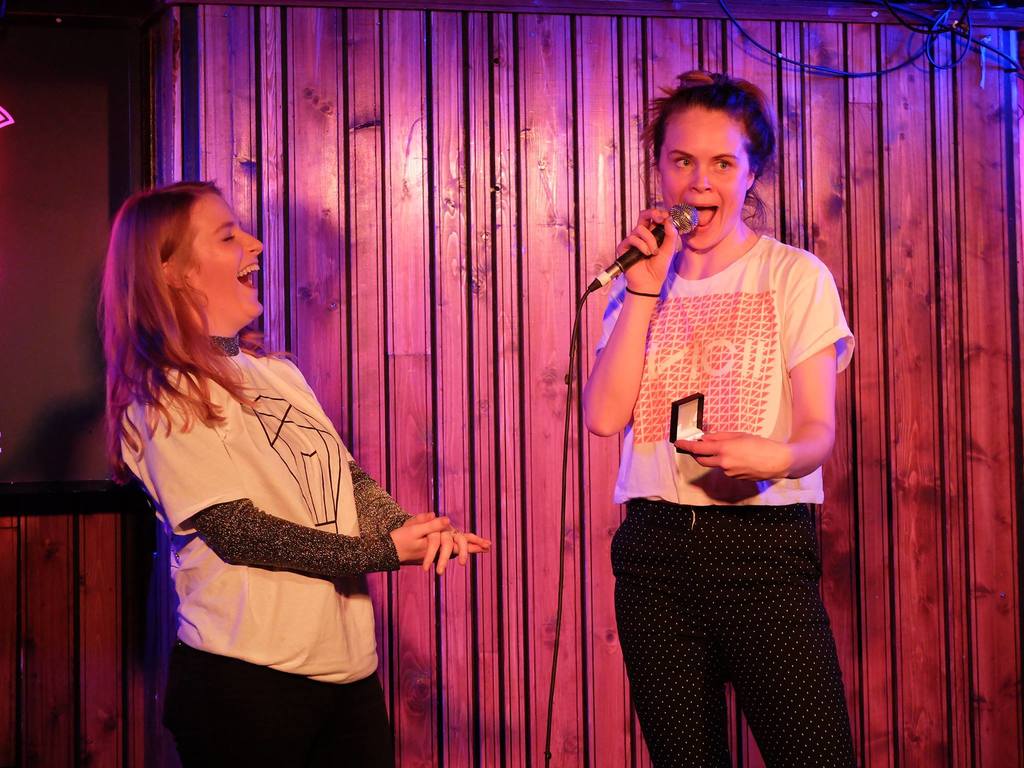
DU Comedy provides exactly what one would imagine it does: comedy, and at an affordable price. While, admittedly, the society has gone somewhat off the radar in terms of activity on campus, they’ve recently begun hosting a Women in Comedy workshop which culminated in a performance last night as part of Trinity Arts Festival (TAF). Speaking to The University Times, Chairperson of the society, Annie Keegan, was quick to outline the aims and vision behind this earnest endeavor to include more women in the society and comedy as a whole.
Collaboration between the society and TAF sparked the inspiration for this series of workshops, although Keegan remarks that “something I’ve wanted to do since I was chair was to get more girls involved”. Even on the society’s committee it’s mostly male, with only about four women out of around a dozen, even though there have been many female chairs in the past. However, there has been a unanimous support for this approach, “the guys really like this idea too because they also want more women involved”.
The workshops have already proven to be a resounding success. Girls with no prior experience in comedy are trying out stand-up for the first time, which is just what the classes had aimed to achieve. Commenting on the lack of experience, Keegan says it’s “exactly what we wanted, for people who didn’t feel comfortable doing it before having a place to try it out”. Participants have approached the workshops with overwhelming enthusiasm, having prepared their own sketches or offering their own ideas already.
It’s hard when your society depends on drawing in crowds because you need to work up a dedicated base of people
Current workshops aside, DU Comedy is always open to new members. People like comedy, evidently, but they don’t tend to want to perform. The society caters to this reluctance, maintaining “what we want to do is to bring comedy to people”. They have a gig about once every two weeks with acts are sourced from the Dublin circuit. Of course, the society supplies their own students acts and they have past committee members who are trying to make it as comedians returning to perform. “We’ll occasionally luck out and get David O’Doherty in a day’s notice”, Keegan remembers, citing the interest in that event as “a good indication that it’s something people really like”.
Although they’re an admittedly small society, Keegan explains that they’re “currently moving into a good place”. They face some unique difficulties in maintaining interest, as “it’s hard when your society depends on drawing in crowds because you need to work up a dedicated base of people”. Name alone won’t guarantee a successful event and this puts pressure on the society to keep up, remarking “we have to prove ourselves”. That being said, there are some advantages to being a less eminent group on campus, crediting collaboration with the the College Historical Society (The Hist) or TAF, currently, as being remarkably helpful. The closeness of the society is a major plus, also, and creates “a really nice atmosphere because everyone knows each other”.
Keegan herself had reservations about joining the society, stating “I wanted to get involved in first year, but I was too afraid”, and that that was “one of the main reasons I went on to do this”, referencing the workshops. She talks of her engagement with the society in almost romantic way, saying “it was never a society I ever saw myself being the chair of, but it just kind of happened”. The group has given her, and undoubtedly many others, “the opportunity to do something I would never have done without it”. Comedy is a passion of many. However, it unfortunately seems to be discouraged or ignored as people grow. With this society, you can see an eagerness to salvage that love for humour and help foster it.
Indeed, DU Comedy has undeniably provided a platform for students to explore and experience humour, whether it be performing or absorbing it.






